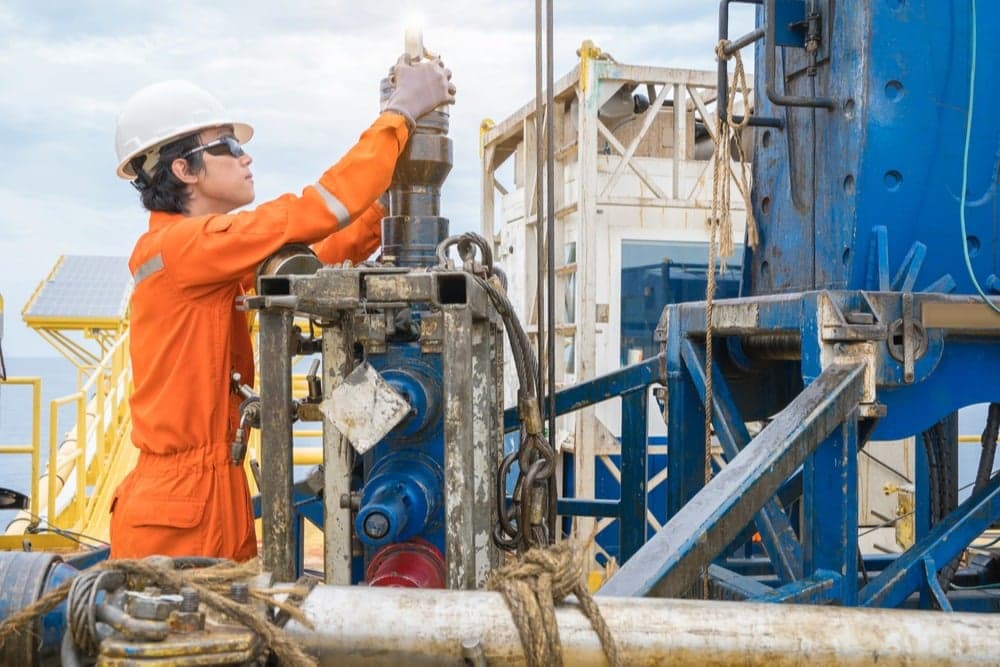Do you think that trade work in the USA and Canada only pays pennies?
In the oil and gas industry, tradespeople have the opportunity and potential to land high-paying jobs!
Tradespeople and technicians cover the roles of skilled manual workers such as electricians, mechanics and equipment operators. These workers are often trained and qualified in a particular discipline, starting out as an apprentice working under a master of the trade.
They also gain on-the-job knowledge and training supplemented by college courses in order to achieve necessary qualifications. The level and type of qualification vary from trade to trade.
If you’re thinking of walking the career path of a tradesperson in the oil and gas industry, here are some of the highest paying positions you should take into consideration:
Industrial Electrician
Industrial Electricians install, maintain, test and repair industrial electrical equipment. They also plan and implement electrical systems based on technical specifications as well as interact with equipment operators to detect faulty equipment issues.
How to Become an Industrial Electrician: A high school diploma (or equivalent) plus completion of a 4-5 year industrial electrician apprenticeship program is typically required.
Average Yearly Salary: $57,000
Heavy Equipment Mechanic
Heavy Equipment Mechanics repair, adjust and maintain heavy-duty equipment for oil and gas-related construction as well as operations activities. They also inspect equipment and machines and perform preventative maintenance on industrial vehicles such as bulldozers and excavators.
How to Become a Heavy Equipment Mechanic: A high school diploma or GED is required along with the completion of a 3-5 year apprenticeship program to become a certified tradesperson. You can also begin a pre-apprenticeship foundation program in high school.
Average Yearly Salary: $54,000
Rig Technician
Rig Technicians are individuals who operate oil and gas drilling rigs. This position is divided into three levels: Level 1 (Motorhand), Level 2 (Derrickhand) and Level 3 (Driller).
Motorhands maintain drilling rig systems, Derrickhands operate and maintain the drilling fluid systems and Drillers operate and monitor the progress of drilling operations.
How to Become a Rig Technician: While a high school education is not required, previous experience in an entry-level role, such as Floorhand, is usually required. You can also enroll in a Rig Technician Apprenticeship program.
Average Yearly Salary: $52,000
Industrial Mechanic
Also referred to as Millwrights, Industrial Mechanics install, maintain and repair stationary industrial machinery and mechanical equipment. These systems may include hydraulic, fuel, lubrication, cool and exhaust.
How to Become an Industrial Mechanic: Along with a high school diploma, Industrial Mechanics usually requires a year or more of education and training such as a 2-year associate’s degree program in industrial maintenance.
Average Yearly Salary: $50,000
Pipefitter
Pipefitters use advanced welding and fabrication skills to install, repair and replace pipes. They also inspect and test pipes to diagnose issues as well as install and repair hydraulic and pneumatic equipment.
How to Become a Pipefitter: Pipefitters typically go through a trade school to earn a certification or degree in pipefitting. Once employed, pipefitters can take part in an apprenticeship program to earn their journeyman classification and work on their own.
Average Yearly Salary: $47,000
Heavy Equipment Operator
Heavy Equipment Operators drive or control large pieces of equipment to assist in construction projects such as building gas and oil pipelines. These pieces of equipment include bulldozers, backhoes, cranes and front-end loaders.
How to Become a Heavy Equipment Operator: To work as a Heavy Equipment Operator, you need a high school diploma. You can also obtain a certificate or associate degree in heavy machine or equipment operation. Otherwise, you’ll typically require on-the-job-training or a 3-4 year apprenticeship.
Average Yearly Salary: $46,000
Insulator
Insulators apply insulation on plumbing and HVAC systems as well as piping equipment. They also repair and maintain pipes while knowing the types, amounts and installation methods required for different conditions.
How to Become an Insulator: Many pipe insulators begin with a high school diploma (or equivalent) and a 4-5 year apprenticeship program.
Average Yearly Salary: $41,000
Welder
Welders work in oil and gas-related construction, operations and maintenance projects by fusing metal parts together. They work with tools such as blowtorches, hand welding and flame-cutting equipment.
How to Become a Welder: While you can become a welder with a high school diploma at minimum, you can also attend a technical school to learn the trade and earn a certification. On-the-job experience is usually attained by working as an apprentice.
Average Yearly Salary: $39,000
The Perfect Job For You Is Out There!
Looking for job opportunities in the oilfield trades? Check out our extensive list of job postings for both Canada and the USA!

